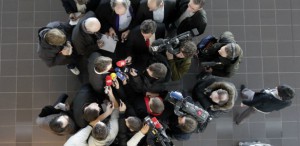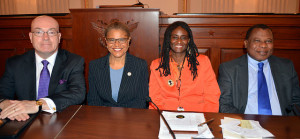For Fathya Eldakhakhny, a journalist with the first independent newspaper in Egypt, AlMasry AlYoum, one of the greatest challenges in the coverage of the Egyptian revolution last year was that of balancing emotion and profession. “How do I report this emotionally and professionally connected event”?
She explained how almost all journalists deep in their hearts supported the revolution but yet “we are required by journalism ethics to report the story from a detached point of view. How to tell the story without being part of the story became a challenge of immense proportions”.
One of my reporters refused to cover the pro-Mubarak rally to demonstrate his disenchantment with the regime. Every effort made to convince him that he was required to present two sides of the revolution to readers failed. What was more: assuming the revolution failed, what would have become of some journalists who were openly against the regime?
With over 350, 000 daily circulation figures, AlMasry AlYoum, established in 2004 is indeed a popular newspaper that is well respected for its editorial independence.
But an interview with the Parliamentary Speaker and published in the newspaper caused a stir among the population who rightly or wrongly perceived that interview as evidence that the newspaper was now on the side of the government. So, the society had drawn a line of either you are with the revolution or against it and this meant challenging journalism practice as we know it- that of reflecting all sides of an issue.
The Egyptian media was unable to deal with the complexity of the revolution; they constantly struggled about how best to do their job to satisfy both the audience and professionalism. “It was overwhelming; and we were indeed overwhelmed”. Such a dilemma in reporting the revolution continues to this day.
Consequently, the media has missed a lot of critical issues and failed miserably to read accurately the mood of the society. For example, media pundits predicted that the Muslim Brotherhood would not do well in the elections and it turned out to be false just like arguments about the success of the referendum.
Fathya acknowledged that online activists pioneered the revolution but has since abdicated their responsibilities and struggles leading to what analysts have dubbed the hijacking of the revolution by Islamists. What happened is that the Islamists were on the streets and therefore took control of the revolution while a lot of online activists remained with their computers surfing the web.







